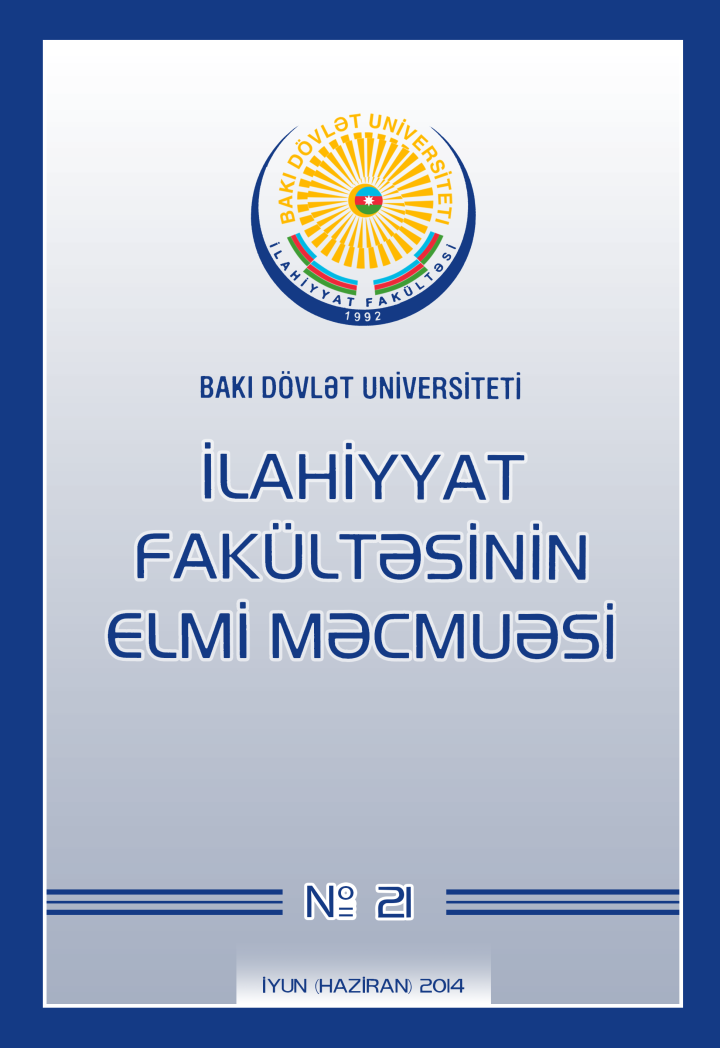İslam Dövlətində Müslüman Olmayan İnhabitantların Vəziyyəti
Status of Non-Muslim Inhabitants in An Islamic State
Abu Dawood, as-Sunan, Jidda, Dar al-Kutub 1998.
Abu Yusuf, Kitab al Kharaj, Istanbul, 1973.
Aghnides, Nicolas Prodromos, Mohammedan Theories of Finance, New York 1916.
Ahmad, Z., The concept of Jizyah in Early Islam, Islamic Studies, Vol. 14, No. 4 (1975), Islamic Research Institute, International Islamic University, Islamabad.
Ahmad, Ziauddin, The concept of Jizyah in Early Islam, Islamic Studies, Vol. 14, No. 4 (1975), Islamic Research Institute, International Islamic University, Islamabad.
Bukhari, Muhammad bin Ismail, al-Sahih, Istabbul 1898.
Francesco Capotorti, Study on the Rights of Persons Belonging to Ethnic.
Religious and Linguistic Minorities, (New York, United Nations, 1979).
Hamidullah, Muhammad, Introduction to Islam, Ankara 2007, 3th edition.
Hamidullah, Muhammad, Introduction to Islam, Ankara 2007.
Hamidullah, Muhammad, The First Written Constitution of the World, Lahore 1958.
Hamidullah, Muhammad, The Prophet of Islam, Istanbul, 2003.
Hasan, S.M., The Economic Functions of the Early Islamic State, International Islamic Publishers, Karachi, 1981.
Henrard, K, Devising an Adequate System of Minority Protection: Individual Human Rights, Minority Rights and the Right to Self-Determination, (2000), Kluwer Law and Taxation Publishers.
Kasani, Alauddin Abu Bakr, Badai as-Sanai, Beirut (1997), Vol. 7.
Keskioglu, Osman, “Taxation in Islamic Law”, Izmir 1966.
Maududi, Abdul A`la, Rights of non-Muslims in Islamic State, KaziPubns Inc. (June 1975).
Peerzade, Sayed Ahmad.,Jizyah: A Misunderstood Levy, JKAU: Islamic Economy, Vol. 23, No. 1.
Pew Research, (2012), The Global Religious Landscape, retrieved from http://www.pewforum.org/2012/12/18/global-religious-landscape-exec.
Sarakhsi, Muhammad bin Ahmad, al-Mabsut, (1993), Beirut, Dar al-Kutub, Vol. 5.
United Nations, Minority Rights: International Standards and Guidance for Implementation, New York and Geneva 2010.
Yadav, TarunPratap, The Myth of Jizyah, Journal of Indian Research, April-June, 2013, Vol. 1, No. 2.
Endirin
Məqalə Məlumatları
- Məqalə Növü Articles
- Təqdim Edildi iyun 30, 2014
- Yayımlanıb iyun 30, 2014
- Nömrə № 21(21) İyun 2014
- Bölmə Articles
